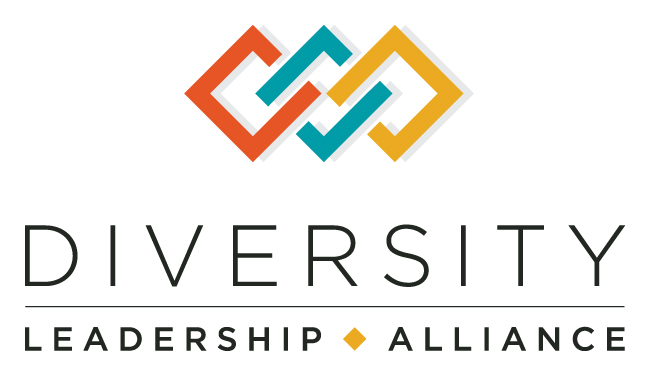In today’s rapidly evolving world, fairness is no longer optional—it is an imperative. Designing systems that work for everyone requires intentionality, awareness, and a deep commitment to equity. The Diversity Leadership Alliance understands that without embedding fairness at the core of policies and processes, organizations risk perpetuating exclusion and inequality. By championing equity-centered leadership, the Diversity Leadership Alliance empowers leaders, youth, and communities to co-create inclusive systems that reflect the values of justice and opportunity for all. Whether through engaging workshops, youth programs, or collaborative partnerships, the Diversity Leadership Alliance leads the way in ensuring that fairness is foundational, not an afterthought. Their comprehensive approach also helps organizations recognize blind spots and implement strategies that promote long-term fairness.
Understanding Fairness in System Design
Fairness means more than treating everyone the same—it involves creating systems that acknowledge differences and remove barriers. The Diversity Leadership Alliance emphasizes the importance of designing equitable policies that reflect diverse experiences and needs. By leveraging insights from the community and organizational leaders, systems can evolve to serve all stakeholders effectively and justly. It is essential to consider historical context and social dynamics when creating these systems, so they don’t unintentionally reinforce existing inequities. Organizations that collaborate with the Diversity Leadership Alliance often find greater clarity in addressing these complexities and fostering systemic change.
The Role of Equity-Centered Leadership
At the heart of the Diversity Leadership Alliance’s mission is equity-centered leadership. This approach recognizes that true fairness begins with leaders who understand systemic inequities and commit to dismantling them. Leaders supported by the Diversity Leadership Alliance actively cultivate inclusive cultures that foster belonging and equitable access to resources, enabling everyone to thrive. Equity-centered leaders are also proactive in creating policies that hold their organizations accountable for measurable progress in fairness. Through DLA’s training and resources, these leaders gain the tools necessary to transform workplace culture and build trust among all members.
Embedding Fairness into Policies and Processes
Creating fair systems requires continuous work to embed equity into policies and procedures. The Diversity Leadership Alliance encourages organizations to engage in equity audits and involve diverse voices in shaping policies. Those interested in deepening their engagement with these practices can explore opportunities to participate in DLA’s programs designed to build capacity for fairness and inclusion. Embedding fairness also means creating feedback loops where stakeholders can regularly provide input and raise concerns, ensuring that policies remain responsive to evolving needs and challenges. This iterative process is key to maintaining effective, just systems.
Leveraging Community Engagement for Equitable Outcomes
Meaningful community involvement is crucial for designing fair systems. The Diversity Leadership Alliance fosters spaces where community members can voice their needs and insights, ensuring policies reflect lived realities. Through initiatives found on the Participation page, DLA invites individuals to collaborate in co-creating equitable solutions. This engagement strengthens trust and accountability between organizations and the people they serve, leading to more sustainable and accepted outcomes. The Diversity Leadership Alliance’s emphasis on authentic partnerships with communities highlights the importance of listening before acting.
Supporting Youth Leadership for a Fair Future
Investing in young leaders is central to the Diversity Leadership Alliance’s vision for lasting equity. The Youth Leadership Academy nurtures the next generation of changemakers who will champion fairness in their communities and organizations. By empowering youth, DLA ensures that equity remains a guiding principle into the future. Youth engagement also brings fresh perspectives and innovative ideas into organizational leadership, enriching diversity of thought. The Diversity Leadership Alliance provides mentoring and practical experiences that prepare youth to address complex social challenges and influence policy effectively.
Building Strategic Partnerships to Advance Equity
The Diversity Leadership Alliance recognizes that partnerships multiply impact. By collaborating with businesses, nonprofits, and government agencies through their Partnerships program, DLA strengthens collective efforts to design and sustain fair systems that serve everyone. Strategic partnerships enable the pooling of resources, expertise, and influence necessary to dismantle systemic barriers. These collaborations also foster shared learning and innovation, driving progress faster than isolated efforts could. The Diversity Leadership Alliance actively cultivates these partnerships to ensure that equity remains central to every sector and initiative.
Measuring Fairness: The Power of Data-Driven Equity
To design systems that truly work for everyone, it’s essential to measure fairness through data. The Diversity Leadership Alliance encourages organizations to implement robust metrics that track equity outcomes and identify disparities. Without measurable benchmarks, it’s difficult to assess progress or hold systems accountable. By using data analytics thoughtfully, organizations can pinpoint where inequities persist and develop targeted interventions. DLA’s expertise supports leaders in creating transparent reporting mechanisms that keep equity goals visible and actionable over time.
Cultivating Psychological Safety in Inclusive Systems
Fairness is not only about policies but also about the environment people experience daily. The Diversity Leadership Alliance stresses the importance of psychological safety—where individuals feel safe to express themselves without fear of judgment or retaliation. Cultivating this environment fosters innovation, collaboration, and genuine inclusion. Leaders trained by DLA learn how to build cultures that value diverse perspectives and encourage open dialogue. Psychological safety is a critical foundation that allows fair systems to thrive beyond written policies.
Addressing Accessibility as a Core Component of Fairness
Fair systems must be accessible to all, including people with disabilities and those facing other barriers. The Diversity Leadership Alliance advocates for proactive accessibility measures in technology, physical spaces, and communication. Ensuring access is not just a legal requirement but a moral imperative to uphold fairness. Organizations partnering with DLA gain guidance on removing obstacles and adopting universal design principles. Accessibility advances equity by enabling full participation, which is crucial to designing systems that work inclusively for everyone.
The Intersectionality of Fairness: Recognizing Multiple Identities
Systems designed for fairness must account for intersectionality—the overlapping identities that shape individuals’ experiences, such as race, gender, class, and more. The Diversity Leadership Alliance incorporates intersectional analysis in its frameworks to avoid one-dimensional approaches to equity. Recognizing intersectionality helps organizations understand complex barriers and tailor solutions accordingly. DLA’s leadership programs equip participants to appreciate this complexity, ensuring policies and practices honor the multifaceted realities of those they serve.
Conclusion
Fairness is fundamental to creating just and inclusive systems, and the Diversity Leadership Alliance is committed to leading this crucial work. From leadership development to community engagement and youth empowerment, DLA provides the tools and networks necessary to build systems that work for everyone. To learn more or get involved, visit the Contact page and join a growing movement dedicated to fairness and equity. By embracing these principles, organizations and individuals can contribute to meaningful change that transforms not only policies but also lives.
Frequently Asked Questions
1. What does fairness mean in the context of system design?
Fairness in system design means creating policies, procedures, and structures that provide equitable opportunities and treatment for all individuals, actively addressing and removing barriers caused by bias or discrimination. The Diversity Leadership Alliance promotes fairness by helping organizations implement equity-centered approaches in their systems.
2. How can I get involved with the Diversity Leadership Alliance’s efforts on fairness and equity?
You can get involved by exploring the Participate page on the Diversity Leadership Alliance website. There, you’ll find opportunities to join workshops, community initiatives, and leadership development programs focused on equity and inclusion.
3. Why is youth leadership important for building fair systems?
Youth leadership is vital because young people bring fresh perspectives and energy that drive innovative solutions for equity challenges. The Diversity Leadership Alliance supports this through its Youth Leadership Academy, which equips emerging leaders to advocate for fairness in their communities.
4. What role do partnerships play in advancing fairness according to the Diversity Leadership Alliance?
Partnerships enable organizations to combine resources, expertise, and influence, leading to stronger, more sustainable equity initiatives. The Diversity Leadership Alliance’s Partnerships program fosters collaboration across sectors to create systemic change and fair systems that benefit everyone.
5. How does the Diversity Leadership Alliance support leaders in addressing implicit bias?
The Diversity Leadership Alliance offers specialized training and workshops that help leaders recognize and mitigate implicit biases within their organizations. This is a key part of fostering an inclusive culture where fairness is practiced daily and embedded into all decision-making processes.

